About a month ago, Craig Lancaster asked me if I’d like to be “the voice” for a book trailer he and RJ Keller were putting together for his upcoming collection. I’m not a voice actor, and I’m not a professional reader, but somehow, some way, word got around that I have a good recording voice. Stunned and flattered, I naturally said yes.
I’ve grown acquainted with Craig over the course of this year, but I’d heard of him prior to connecting via the usual social networks. If you keep your ear to the ground of the indie and self-publishing “scene,” you’ve probably heard his name pop up more than a few times. His first novel, 600 HOURS OF EDWARD, was a Montana Honor Book in 2009 and a High Plains Book Award winner in 2010. His second novel, THE SUMMER SON, was published by AmazonEncore earlier this year. I can’t speak for the former, but I read his second novel earlier this year, and it’s fantastic.
But hey, this isn’t about that book. This is about his new book, a short story collection titled QUANTUM PHYSICS AND THE ART OF DEPARTURE. Craig sent an advance copy to me as payment for my humble voice work.
From the book jacket:
A championship basketball coach caught between his team, his family and the rabid partisans in his town. A traveling salesman consigned to a late-night bus ride. A prison inmate stripped of everything but his pride. A teenage runaway. Mismatched lovers. In his debut collection of short fiction, award-winning novelist Craig Lancaster (600 Hours of Edward, The Summer Son) returns to the terrain of his Montana home and takes on the notion of separation in its many forms – from comfort zones, from ideas, from people, from security, from fears. These ten stories delve into small towns and big cities, into love and despair, into what drives us and what scares us, peeling back the layers of our humanity with every page.
I look at short story collections like albums. The good ones have 12 or 13 entries that can stand on their own, because the musicians played from their hearts. And sometimes, well, other collections have one or three good hits, strategically placed to keep you interested enough to deal with the filler in between.
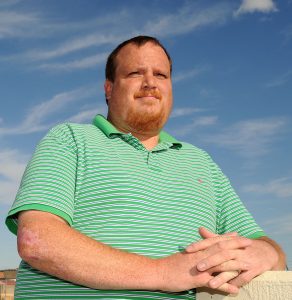 I’m happy to say Craig’s collection is not one of the latter. It’s definitely one of the better collections I’ve read in the last several years. And, really, even saying it’s great as a whole book isn’t doing it justice. There are some real gems in this collection, folks. When I read a collection, I can usually pinpoint a couple of favorites out of the mix. “The Hits,” in other words. With this book, I can’t do that, because they’re all that good.
I’m happy to say Craig’s collection is not one of the latter. It’s definitely one of the better collections I’ve read in the last several years. And, really, even saying it’s great as a whole book isn’t doing it justice. There are some real gems in this collection, folks. When I read a collection, I can usually pinpoint a couple of favorites out of the mix. “The Hits,” in other words. With this book, I can’t do that, because they’re all that good.
I can’t choose between stories like “This is Butte. You Have Ten Minutes” and “Alyssa Alights,” or “She’s Gone” and “Comfort and Joy.” They’re all written from the heart, with characters that breathe on the page. They’re filled with people dealing with situations that we’ve all probably dealt with at one point or another. They never get tedious. They’re all evenly paced. Hell, the first story revolves around basketball, and I still enjoyed it. That’s saying something, because I am not a sports fan. At all.
I want to go into detail with you about these stories, but I can’t. The book jacket tells you about as much as it can without telling you too much. And, really, anything I could say here about these stories would not do them justice.
To sum up everything, Craig Lancaster’s put together a collection of stories that will break your heart, make you laugh, and lift you up again. These are the sort of stories I hope to write one day.
The book is QUANTUM PHYSICS AND THE ART OF DEPARTURE. It will be released in print on December 6th, 2011. The Kindle edition is available now.
As an addendum to this little feature, I managed to corner Craig and subject him to a series of questions:
SPR: Who is Craig Lancaster?
CL: Just another overweight, middle-aged American with a dream. Although of this writing (11:45 p.m., Sunday, September 11) I’m mostly a depressed Dallas Cowboys fan.
SPR: How did you get into this business?
CL: I knew when I was sixteen years old, reading Hemingway for the first time, that I wanted to write novels. Then other things got in the way: college, building a career, the futile pursuit of women. I ended up in more or less the publishing ballpark: I became a journalist – mostly an editor at newspapers all over the country.
In 2008, I was in a really bad motorcycle wreck, 65 mph on Interstate 94 after a deer jumped into my path. In the aftermath of that, when I was plenty lucky to be alive, I decided I ought not waste any more time. So I didn’t (as long as you don’t count Facebook wankery).
My timing was pretty good, or pretty awful, if you’re the sort who looks at things pessimistically: About the time I got started, the so-called way it’s done started unraveling. As it turns out, self-publishing my first novel through CreateSpace and then seeing it picked up by a traditional publisher made mine a pretty common story.
SPR: Let’s talk about the origins of this collection. After two successful novels, what made you want to shift gears and work on short stories?
CL: It wasn’t really a deliberate choice. After the second novel, The Summer Son, short-story ideas came at me pretty regularly, and I was happy for the change of pace. In their own way, I find them just as challenging as I do novels, but the payoff comes a bit more quickly. Several of the stories in this collection were written in less than a week, with a bit more time after that spent revising and polishing them.
Now, I’m finding that longer-form ideas are flourishing. It wouldn’t be the worst thing in the world if I ping-ponged between the two forms henceforth. They’re both really enjoyable.
SPR: Some of the stories in Quantum deal with similar themes. Namely, that of strained (or even failing) marriages. Was this intentional?
CL: I’d call it more coincidental. Last year, when the bulk of these stories were written, was a very difficult one in my marriage, and so I’m sure that difficulty was informing my ideas and inspiration. That said, there’s not a single story in the collection that is a thinly veiled recitation of actual events. My wife is pretty good at finding the real-life elements I borrowed, but that’s because she’s a sharp one.
SPR: The story “Alyssa Alights” put me in mind of a comic book origin story. I know that’s weird given the story’s tone, but seriously, I could see a more in-depth tale between the lines. So, I’m curious: Is there any chance we’ll see a novel emerge from this short?
CL: Actually, “Alyssa Alights” is salvaged from a novel that never found its legs, and its companion story, “Sad Tomato: A Love Story,” actually predates it by a good number of months. “Alyssa” became a bit of a back construction.
Another story in the collection, “The Paper Weight,” also emerged from that sunken novel. And the lead-off story, “Somebody Has To Lose,” is another one that began life with bigger aspirations.
All that said, I hope no one considers them to be stories that didn’t make it. On the contrary, they found their destiny just fine. I was simply wrong in my initial assessment of them.
SPR: Out of all the stories in the collection, “This is Butte. You Have Ten Minutes” stayed with me the longest. You mentioned on your blog that you were on a bus at the time you had the idea for the story. Can you give readers a bit more insight into that initial spark? Did everything click into place?
CL: It really did. Last October, I was due in Missoula for the Montana Festival of the Book on the same weekend that my wife was moving out of our house, so I left our SUV with her and booked a ticket on Greyhound. I was in a bad, bad place emotionally. I figured, at the least, it would give my synapses some stimulation. And I was right. The forgotten people, the dictatorial driver, the hazy-dreamy feeling of nighttime travel (my bus left Billings at around 1:30 a.m.) – it all stayed with me. And I was lonely as all hell. That was probably the biggest piece of inspiration right there. It led me to imagine this guy who spends his life surrounded by people and yet has no intimacy at all.
I started writing it almost immediately after I got back from Missoula, in a house that was empty save for my writing table, a couch and my TV.
SPR: Leading off from the last question, I’d like to shift focus to your process. As a writer, I know how difficult short stories can be, especially when they all yearn to be novels in their own right. What can you tell us about your process?
CL: Most of the time, I know when something will be a short story, and I have a pretty good idea of where it’s going. Now, that said, there certainly are surprises. For instance, in the story “She’s Gone,” I had no idea that the violent father from “The Summer Son” would show up until he did. Turns out, he was a perfect fit for that story – and he was the same charismatic son of a bitch he was in the novel. As with the novels, I draft first – and generally pretty quickly. Luckily for me, I really love revisions. Which is good, because my first drafts certainly need them.
SPR: Let’s talk publishing. You’re an Amazon Encore author, with roots in self-publishing. What can you tell us about your journey from there to here?
CL: Oh, boy. Long story that’s getting longer all the time. Threw up a horrible first version of my first book, “600 Hours of Edward,” on CreateSpace, because I was impatient and didn’t know any better. It caught the attention of a publisher here in Montana, Riverbend, which re-released it in October 2009. All of that good stuff followed from that: Montana Honor Book, High Plains Book Award winner.
I hooked up with AmazonEncore because they had been sniffing around “600 Hours.” When I told Riverbend that I wanted to look for a more fiction-oriented publisher for “The Summer Son,” they were kind enough to give me the number of an editor at Encore who had been in touch with them. I cold-called him that day, and a couple of weeks later, we had a deal.
Because I came up on the newspaper side of things, as an editor, I’ve always had a fondness for and an interest in the physical product. I’ve spent most of my working life as a copy editor and a graphic designer, so between my first and second novels, I started a publishing company here in Montana, Missouri Breaks Press. I figured it would be a good way to publish overlooked work that I have an interest in, as well as a hedge for my own work as publishing goes through this massive wave of change it’s in. The first book I did was Carol Buchanan’s historical novel “Gold Under Ice,” which was just a Spur Award finalist. My second one, a collection of Montana yarns called “The Big Sky, By and By,” written by my newspaper colleague Ed Kemmick, was released in July and has been a big hit here. Those two books have given me the confidence to release my own stuff, which is what I’m doing with “Quantum Physics and the Art of Departure.”
SPR: What’s your experience been like working with Amazon Encore?
CL: Really, really good. I have no complaints. They put out a beautiful book, and did so quickly and with the utmost professionalism. I hope we get to work together again.
SPR: It’s no secret that most publishers don’t want collections because they don’t sell, and I know you published Quantum through your own imprint. This leads me to wonder, did you pitch the collection to Amazon?
CL: I did, but to be honest, I didn’t expect them to bite. The numbers are pretty sobering: short-story collections sell about as half as well as novels, and I certainly haven’t sold enough novels to expect anyone to bend the rules for me just because I’m a swell guy. While Encore was considering the collection, I was prepping it for print and e-book release on my own – I engaged the services of the best editor I know, Jim Thomsen – so I was ready to go on a moment’s notice.
In a way, it’s an odd little collection, with a variety of styles and points of view. Some of the characters overlap, but it’s not the novel-in-short-stories that seems to be so popular today. I wanted to write a diverse collection, the kind that I love to read. In the past few years, I’ve read more than my fill of dreary, Cormac McCarthy-wannabe short-story collections. It’s funny: I joked on Facebook a while back that I ought to title the collection “Fuck You” because it defies the current conventions. I’m totally cool with that. I prefer it.
Beyond all that, the simple fact is that I was looking for a good project of my own to release through my press, and this certainly fits the bill. In the past few years, I’ve built some really good relationships with booksellers and reading groups and libraries around my home region, and I have every expectation that this book will do well here where my first two have been so well-received. I’m content to let word of mouth do the rest, as it has with my first two books.
SPR: So what’s next?
CL: I’m juggling two novel projects, something I said I’d never do, so once again, I’m a liar. I’m not really ready to talk about them in any substantive way, but I will say this: One of them is rooted in the Texas of my childhood, and I’m digging the chance to revisit that era. It’s going to be a big, loud, fun story, and I have to tell you, I think we need more of those. I told Thomsen a few days ago that I want to write a novel as loud and fun and colorful as a Freddie Mercury song, and I hope this story can be that. This anecdote also feeds nicely into the next question …
SPR: Bonus: You can pick only one of the following: “Fat Bottomed Girls” or “One Vision.” Choose wisely. You are being judged.
CL: “Fat-Bottomed Girls,” every day and twice on Sunday.
Craig Lancaster’s short story collection, QUANTUM PHYSICS AND THE ART OF DEPARTURE, is available now for pre-order.
If you’d like to read more, visit his website. You can also follow him on Twitter and Facebook.
Get an Editorial Review | Get Amazon Sales & Reviews | Get Edited | Get Beta Readers | Enter the SPR Book Awards | Other Marketing Services


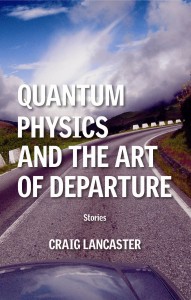
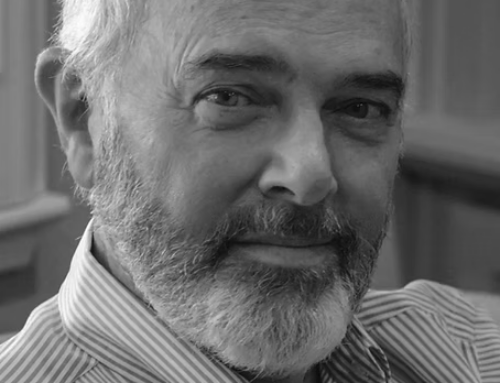









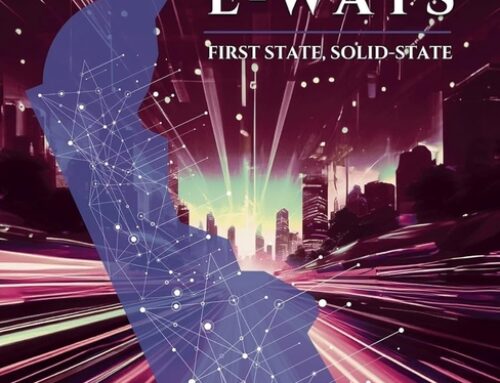




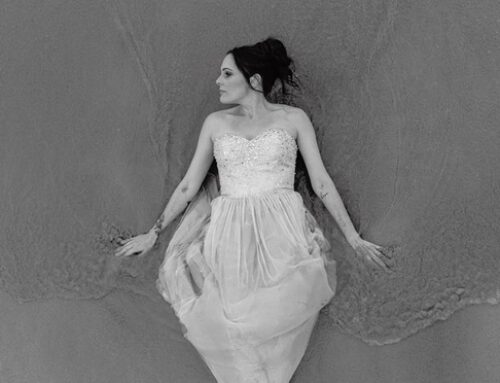
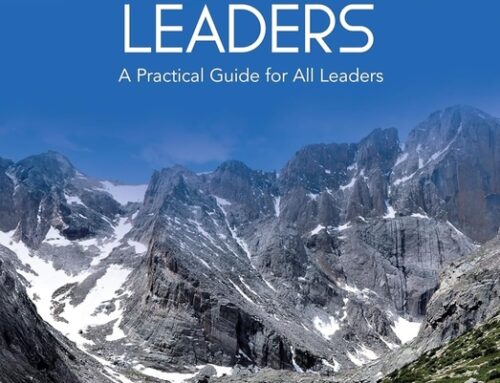
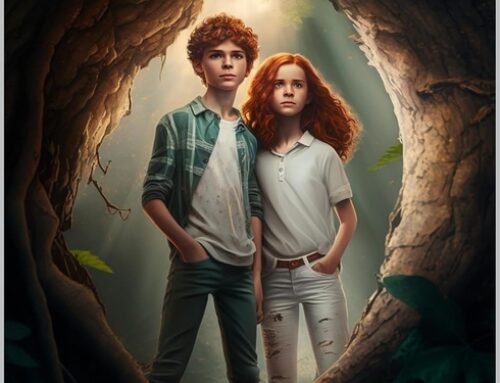

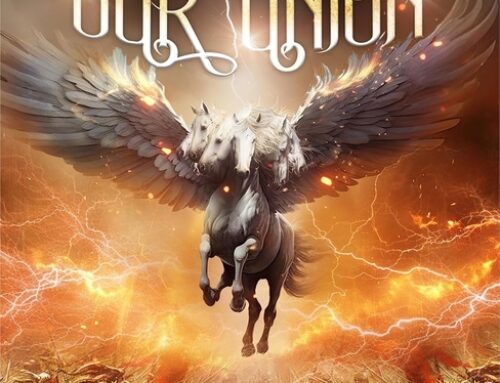
Leave A Comment